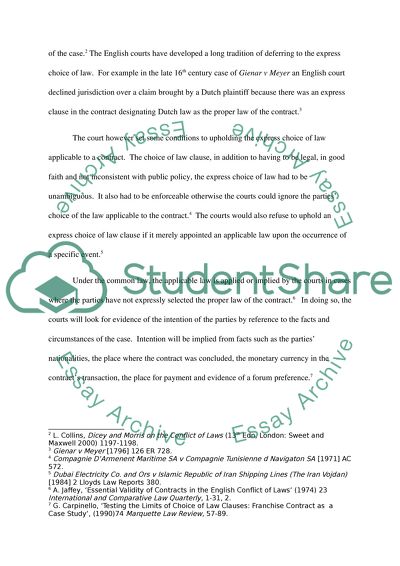Cite this document
(“Law Applicable to Contracts Under English Common Law, Rome Convention Essay”, n.d.)
Retrieved from https://studentshare.org/law/1419216-law-applicable-to-contracts-under-english-common-law-rome-convention-on-the-law-applicable-to-contractual-obligations-1980
Retrieved from https://studentshare.org/law/1419216-law-applicable-to-contracts-under-english-common-law-rome-convention-on-the-law-applicable-to-contractual-obligations-1980
(Law Applicable to Contracts Under English Common Law, Rome Convention Essay)
https://studentshare.org/law/1419216-law-applicable-to-contracts-under-english-common-law-rome-convention-on-the-law-applicable-to-contractual-obligations-1980.
https://studentshare.org/law/1419216-law-applicable-to-contracts-under-english-common-law-rome-convention-on-the-law-applicable-to-contractual-obligations-1980.
“Law Applicable to Contracts Under English Common Law, Rome Convention Essay”, n.d. https://studentshare.org/law/1419216-law-applicable-to-contracts-under-english-common-law-rome-convention-on-the-law-applicable-to-contractual-obligations-1980.


